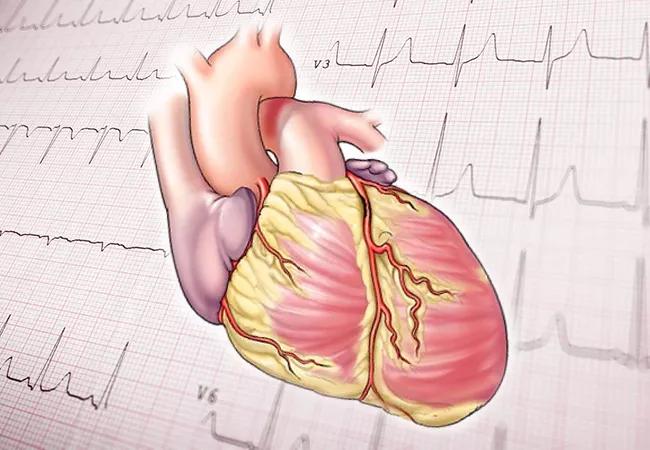Cleveland Clinic nurses study impact of classes

Measuring outcomes and the value of a particular intervention isn’t always a straight line from A to B. This is what Kelly Haight, MSN, APRN, ACNS-BC, PCCN, is finding.
Advertisement
Cleveland Clinic is a non-profit academic medical center. Advertising on our site helps support our mission. We do not endorse non-Cleveland Clinic products or services. Policy
Haight, a Clinical Nurse Specialist at Cleveland Clinic Medina Hospital, and her co-investigator Josalyn Meyer, MSN, RN, NEBC, are examining clinical outcomes data on 3,700 patients attending a group education class during hospitalization for heart failure. They are trying to determine if there is a link between the group education class setting – versus individual in-room education – and reduced rates of hospital readmissions at the 30-day and 90-day mark.
The data was collected when the two were on the medical cardiology and step-down floors at the Sydell and Arnold Miller Family Heart and Vascular Institute at Cleveland Clinic.
The heart failure education class began in 2012 based on curriculum developed by Theresa Cary, former clinical nurse specialist for medical cardiology and step-down floors. The concept was to bring patients – and their family members – together as a group to educate them on how to best manage their disease. Including family members in the class is key since heart failure patients often rely on family as caregivers.
The class, now standard care for heart failure inpatients, educates attendees about heart failure basics. A nutritionist discusses how diet plays a role in managing the condition, and a pharmacist educates attendees about how medications work, potential side effects and warning signs that indicate when to call the doctor.
“The class generates a lot of information for patients and has a consistent message, so we can ensure they are receiving education in a valuable way, while learning from each other,” Haight says. “Attendees can interact, ask questions and see how others are working the various strategies into their lives at home.”
Advertisement
Patients who elect not to attend the class receive the same information in their rooms from a nurse.
While it’s too early to report outcomes, the data does show lower readmission rates at the 90-day mark for patients who attended a group class with a family member. Haight says the heart failure care team remains dedicated to helping heart failure patients live their best life and avoid hospital readmissions.
“We are trying to determine the relevant information,” Haight says. “We know there is value to the class, but we still need to consider confounding factors that may have influenced the clinical outcomes.”
Haight and Meyer plan to present their findings later this year.
Advertisement
Advertisement

Planning continues with critical, patient-focused input from nursing teams

Strengthening care through targeted resources and frontline voices

Embracing generational differences to create strong nursing teams

CRNA careers offer challenge and reward

An unexpected health scare provides a potent reminder of what patients need most from their caregivers

Cleveland Clinic Abu Dhabi initiative reduces ICU admissions and strengthens caregiver collaboration

Veteran nurse blends compassion, cutting-edge transplant training and military tradition to elevate patient care

Embrace coaching and other tips to be a stronger leader